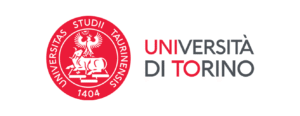OUR CONTEXT
Turin is a diverse and demographically rich city—an ideal testing ground for AI systems designed to support inclusive decision-making. Within this urban landscape, we’ve identified key areas where a perspective-aware LLM could make a meaningful difference. Public transportation, in particular, stands out as a system that intersects with a wide range of citizen experiences and needs.
Take, for example, the issue of morning overcrowding on buses. This challenge emerges from various data sources—citizen complaints on social media, mobility statistics, and usage patterns. But how the issue is perceived can vary dramatically: for high school students, it’s a major inconvenience; for retirees, it may barely register as a problem.
These differing viewpoints highlight the importance of capturing multiple perspectives when shaping public policy.
To address this, we’ve gathered extensive socio-demographic data about Turin and mapped out relevant urban factors. At the same time, we’ve begun working closely with local partners and city departments to co-develop a set of socially relevant themes. These include both mobility-related concerns—like reconstructing movement patterns of different citizen groups—and broader social service topics, such as housing policy and access to public housing. This collaborative approach aims to identify and reduce areas of urban discomfort through smarter, more targeted decision-making.
TRUSTWORTHY AI
To ensure reliability and inclusiveness, HARMONIA combines cutting-edge AI techniques with structured, context-aware knowledge integration. Our approach enhances Large Language Models (LLMs) using two complementary strategies: Retrieval-Augmented Generation (RAG) and Knowledge Injection. These methods allow models to generate responses that are informed by real-world, up-to-date, and verifiable information—reducing hallucinations and improving relevance.
A central element of trustworthiness lies in data transparency and fairness. We are developing a framework for data collection and encoding that is modular, scalable, and transferable to other cities.
The system is designed to reflect different ways people perceive social issues, using what we call a perspectivist approach. This means the model doesn’t just answer based on majority trends, but can generate tailored responses aligned with the needs and viewpoints of specific citizen groups.
By integrating these techniques with behavioral theories of decision-making, HARMONIA aims to create LLMs that are not only powerful but also transparent, adaptable, and sensitive to the complexity of real-world governance. Our goal is to make AI a trustworthy partner for public administrations—supporting fairer, more effective decisions for all.







